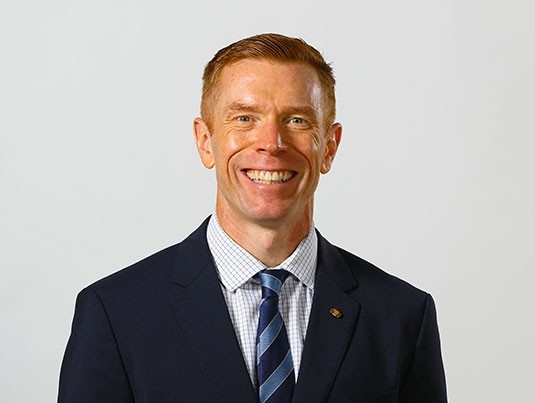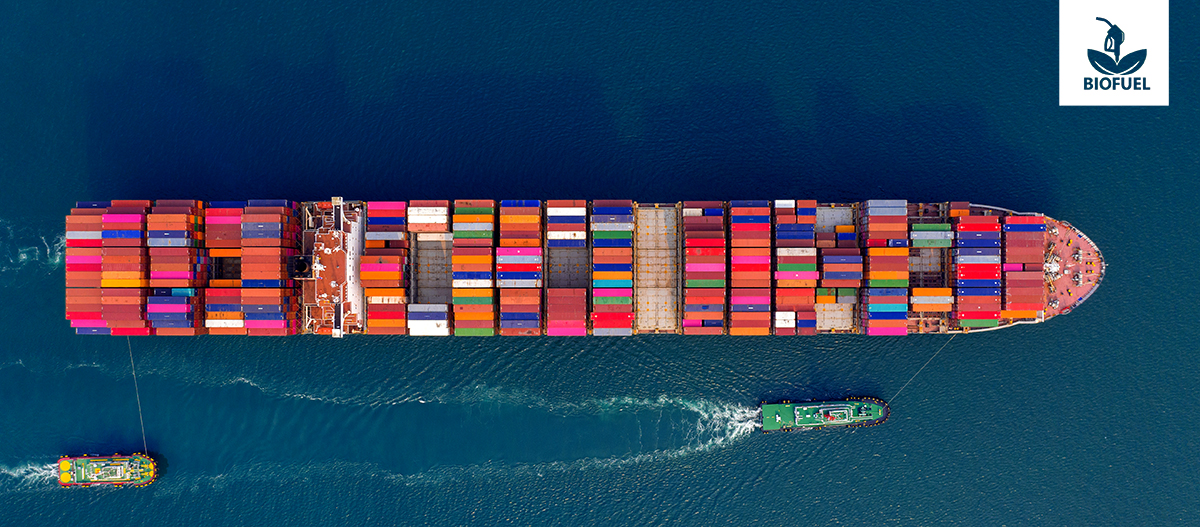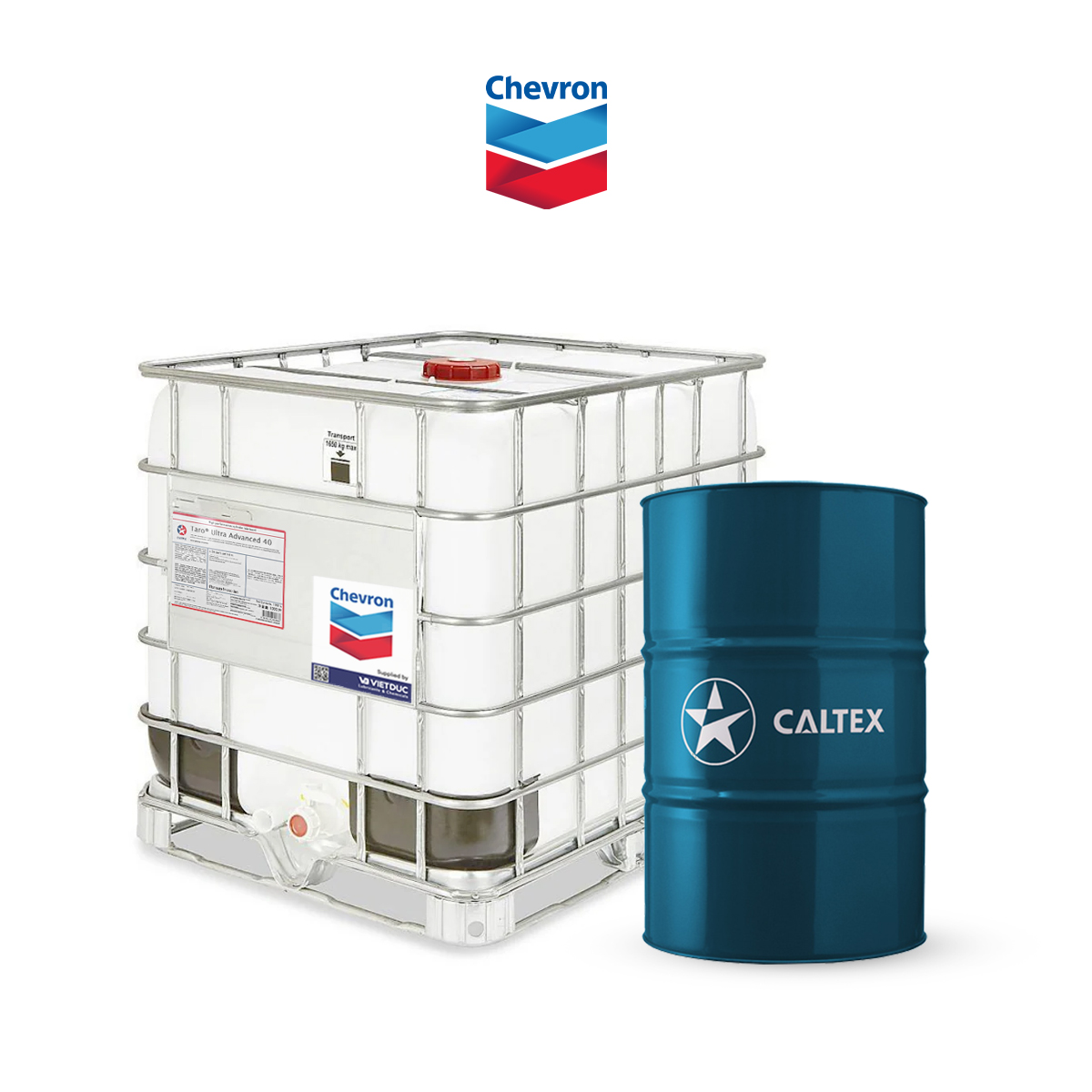Taro Ultra Advanced 40 Marine Engine Oil Helps Advance Global Emission Reduction Goals
Chevron's Taro Ultra Advanced 40 lubricant is designed for modern low-sulfur and alternative fuel marine engines.
2.jpg)
Mr. Pat McCloud, Global Marine Sector Manager at Chevron, is confident that Chevron's new Category II engine lubricant - the Taro Ultra Advanced 40 - can contribute to achieving carbon emission reduction goals in Europe and globally.
"The question of 'Which new fuel to choose?' will be a trillion-dollar question for the maritime industry over the next 30 years... I am confident that Chevron is well-positioned to provide products that support the industry throughout this period."

Pat McCloud, Global Managing Director, Marine - Chevron
In a recent interview about the launch of Chevron's latest lubricant products, Mr. Pat spoke about the newly developed two-stroke engine oil designed for very low-sulfur and ultra-low-sulfur fuels (VLSFO & ULSFO). This reflects Chevron's long-term commitment to investing in technical capabilities to develop lubrication solutions for new fuels as they emerge on the market.
As the world's leading energy developer, Chevron understands future fuel trends better than anyone else. "We are industry leaders in providing energy solutions," he stated, highlighting a variety of future options. From LNG, Methanol, Ammonia, and E-fuels to other Biofuels, all these will become part of the green fuel portfolio that the maritime industry can utilize in the future, he explained. "Therefore, for Chevron, it is crucial to quickly establish a position within this value chain."
Currently, Chevron has been supplying Biofuels to fleets in Singapore and is evaluating opportunities to expand into other markets.

"These green fuel options will be key for shipowners to meet the EU’s 'Fit for 55' targets—reducing emissions by at least 55% from all sources by 2030 and achieving carbon neutrality by 2050. 'The lubrication solutions we develop will align with our customers’ fuel choices,' he added.
The maritime industry operates on a global scale, so we advocate for the adoption of unified global standards rather than regional regulations. This approach helps shipowners and OEMs make decisions that align with international benchmarks rather than tailoring solutions for each country or continent. Chevron is also committed to meeting the IMO’s emission reduction goals for 2030 and 2050," he shared.
Chevron has implemented a global distribution strategy for its newly launched product, Taro Ultra Advanced 40, developed to comply with the service letter issued by MAN Energy Solutions in May 2020. This letter defined two quality levels for lubricants suited for the company's two-stroke engines. For MK9 engines and newer, only higher-quality lubricants classified under Category II are acceptable. At the time (2020), only high-BN (Base Number) lubricants (100-140) received MAN Energy Solutions' No Objection Letter (NOL), creating challenges for shipowners who had to use two different BN lubricants simultaneously.
product development challenges
This requirement posed a challenge for lubricant manufacturers: to develop a product with a BN of 40 suitable for low-sulfur fuels while maintaining the cleaning performance of high-BN lubricants to meet Category II standards. According to Mr. Pat McCloud, "This broke the conventional relationship between high-sulfur fuels and high-BN lubricants, presenting significant challenges for lubricant producers."
Chevron’s Taro Ultra Advanced 40 offers a solution to this complex problem. It is suitable for use with fuels such as VLSFO (Very Low Sulfur Fuel Oil), distillates, LNG (Liquefied Natural Gas), Ethanol, Methanol, and LPG (Liquefied Petroleum Gas). Additionally, Chevron is working with MAN Energy Solutions to ensure the product is approved for use with other emerging fuel options.

"Since receiving the No Objection Letter (NOL), we have been able to commercialize this formulation and establish initial distribution points in key locations," McCloud stated. These points are situated at major ports where we see customer demand alongside reliable production and supply capabilities, he explained. "As the industry evolves, we will implement supply strategies to ensure the product is available wherever our customers need it. And as more ship operators transition to using Category II 40 BN oils, we will expand our capabilities with a vision of building a global distribution network."
Launching a new product often involves a long process of incremental steps in formulation and market assessment. However, with Taro Ultra Advanced 40, Chevron's development team had to make significant leaps to achieve an optimized formulation as quickly as possible. Chevron's technical experts and formulators collaborated with additive suppliers and OEMs to refine the components and deliver a groundbreaking performance level.
The combinations of base oils and additives underwent extensive laboratory testing and were then subjected to real-world trials. The final version achieved a total base number (BN) of 40 while fully meeting the cleaning performance standards of a BN 100 lubricant.
.png)
fuel of the future
In the future, the lubricant industry will face even greater challenges as fleets move toward green fuels such as biofuels, methanol, ammonia, and hydrogen.
There won’t be a single dominant fuel choice for the entire maritime industry," McCloud noted. "As a result, Chevron will need to continuously refine formulations to ensure full compatibility. However, with years of experience providing lubricants for LNG- and methanol-powered fleets, I’m fully confident we can develop products that meet our customers' lubrication needs, regardless of fuel type," he added.
That said, the question of "Which new fuel to choose?" remains a trillion-dollar question for the maritime industry over the next 30 years. "We are working closely with fleets worldwide to better understand their optimal choices and the technologies they plan to implement in their new projects. This will shape the future of marine engine manufacturing, setting the course through 2060 and beyond," McCloud explained.
Among the noteworthy cases is AP Moller-Maersk, which is ordering a significant number of vessels powered by green methanol. For these new builds, Maersk has established strategic relationships with global producers to secure the necessary fuel. "This is a clear indicator of which fuel the maritime industry may prioritize in the future," McCloud observed.
He also predicts a growing number of newbuilds using ammonia as fuel. "From the perspective of a lubricant producer, I’m confident Chevron is well-positioned to provide products that support the maritime industry's shift toward this trend," he said.
chevron overcoming the COVID challenges
Pat McCloud not only takes pride in the new Taro Ultra Advanced 40 lubricant but also in the product development process, much of which occurred during the peak of the COVID-19 pandemic. This period presented significant challenges. For instance, during shipboard trials, the technical team had to board vessels, collect samples, and evaluate cleanliness, impurities, and performance—tasks severely hampered by travel restrictions.
Like every other business, Chevron's operations were heavily affected by COVID-19 restrictions. Despite supply chain disruptions and economic impacts from government lockdowns, Chevron maintained its reputation as a reliable supplier. "This is what sets us apart from our competitors. We ALWAYS find solutions for our customers," McCloud emphasized.
Between 2020 and 2022, Chevron organized numerous online workshops, bringing together experts from Chevron, equipment manufacturers (OEMs), and its own customers to share insights on fuels, lubrication technologies, and industry challenges.
"Previously, such presentations would have taken place at conferences or industry events, perhaps once or twice a year. But we learned that we could dedicate an hour with experts to discuss and debate industry issues. This model allows for efficient information sharing and can be scaled and distributed to customers very quickly. So, this is something we’ll continue doing," he explained.
COVID also underscored the benefits of collaboration between Chevron’s support teams and its customers. "We faced many supply challenges and had to form rapid response teams to ensure we could deliver to customers anytime and anywhere, working seamlessly with their logistics teams," McCloud shared.
These experiences have created what McCloud describes as a flexible operational framework, established through the necessary digital transition during the pandemic. "That’s why I’m genuinely excited about our direction in digital solutions," he added.
For product details and purchasing information, visit: https://vietducjsc.vn/taro-ultra-advanced-40-p242.html
Chevron, Taro Ultra Advanced 40, marine lubricant, low-sulfur fuel, Category II, emissions reduction, MAN Energy Solutions, LNG, Methanol, ammonia, green fuels, maritime industry, COVID-19 challenges, digital transformation, global distribution.
VIET DUC JOINT STOCK COMPANY
Address: No. 274 Ngo Quyen Street, Van My Ward, Ngo Quyen District, Hai Phong City.
For technical consultation on products, please contact:
Email: ngoc.tt@vietducjsc.vn
Hotline/Zalo: +84 89 669 1189








